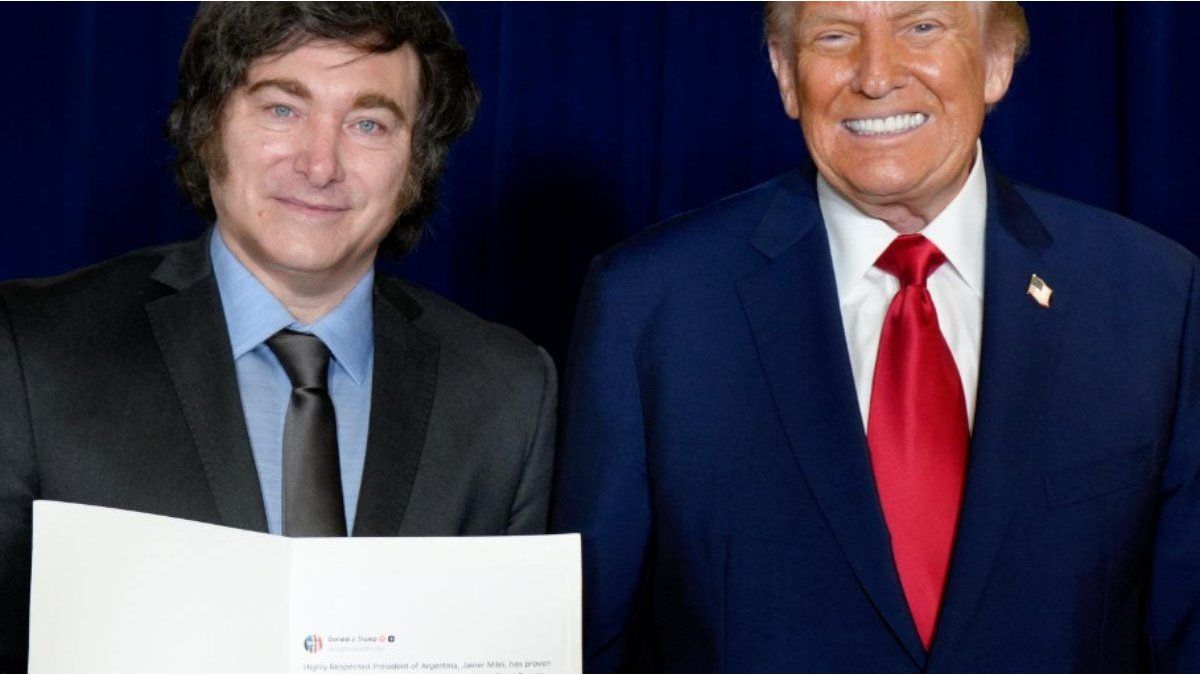The irruption of Javier Milei In Argentine politics it is enrolled in a broader phenomenon, the rise of the extreme right in the contemporary world. From Donald Trump in the United States until Jair Bolsonaro In Brazil, going through Viktor Orbán in Hungary or Giorgia Meloni In Italy, different leadership They have channeled social discomforts through anti -system speechesemotional appeals and promises of restoration of the order against an alleged chaos.
Alejandro Grimson (2023), in Derangedanalyze this process as a vertiginous change in the political and cultural coordinates of contemporary societies. THE CONCEPT OF “DECEIMENT” It does not only refer to a loss of reason or moderation, but to a displacement of normative axes that sustain democratic life. Within this framework, the Argentine case under the government of Milei constitutes a radicalization laboratory, where they converge Hate speeches, Shock economic policies and a political narrative that glorify cruelty as a form of government.
Hate speech as axis of the new right
One of the most significant features of the extreme right is the naturalization of hatred as a legitimate form of political participation. Grimson (2023) argues that this current is characterized by transforming to virtue what was previously considered a vice: intolerance, verbal violence and the denial of the adversary.
In Argentina, Milei has converted insults and disqualifications in central part of his political communication. The category of “caste” It works as an empty signifier that encompasses every traditional political actor, including those who were not part of the previous ruling. This discursive device has two main effects: on the one hand, it simplifies social complexity in a moral dichotomy between pure people and corrupt elite; on the other, enable the stigmatization of any opposition actor as the enemy of the people.
The proliferation of hate speeches is not limited to formal political space. In social networks, figures close to the ruling party reproduce and amplify these messages, generating a climate of permanent hostility. Symbolic violence is transformed into structural violence when it legitimizes the exclusion of minorities, the persecution of opponents and the repression of social protest.
Sadism as a form of government
Grimson (2023) Enter a provocative category, political sadism. According to the author, the extreme right not only accepts the social suffering As an inevitable cost, but makes it a demonstration of strength and ideological coherence. Govern implies, in this registry, inflict pain to others To show determination.
The Milei government exhibits this logic in multiple decisions. Social programs cuts are presented as necessary punishments to end the “state parasitism.” The abrupt increase in rates It is justified as an indispensable sacrifice to achieve economic freedom. The repression of manifestations It is celebrated as an act of authority against disorder. In all these cases, Suffering is not hidden nor minimized, but claimed as a sign of political authenticity.
This trait differentiates the extreme right of the austerity policies applied by neoliberal governments in previous decades. While these used to frame the Settings As painful but transitory measures, Argentine libertarianism presents them as heroic acts that reveal the strength of the leader and morality of his cause.
3.4. The construction of internal enemies
Political defection also manifests itself in the proliferation of internal enemies. Libertarian discourse identifies democracy threats to Unionsthe social movementsthe critical journaliststhe economists from the same theoretical frameworkthe public universities and even International organizations of human rights.
This signaling strategy fulfills several functions:
- It generates cohesion around the leader, when building a common enemy.
- It justifies the use of repressive force against civil society sectors.
- Delegate intermediate institutions that could function as democratic counterweights.
The demonization of social actors is not a local invention. As Grimson (2023) emphasizes, it is a global strategy of the extreme right, which transforms politics into a moral battlefield, where negotiation and commitment are replaced by the logic friend/enemy (Carl Schmidt).
The spectacularization of politics
Milei’s communication style reinforces the spectacular dimension of politics. From its television appearances as media economist until your interventions in social networksthe current president built his leadership in a format of Permanent show. This Spectacularizationfar from being superficial, it fulfills a structural function: Transform policy into entertainmentreduce complex debates to shocking slogans and reinforces the leader’s centrality as charismatic figure.
In DerangedGrimson (2023) emphasizes that this process implies an emptying of public deliberation. When politics becomes a show, rational arguments lose relevance against intense emotions. The result is a Degraded democracyin which citizens no longer discuss collective projects, but they consume confrontation scenes Designed to generate adhesion or visceral rejection.
3.6. The overall desción dimension
The Argentine case is part of a broader pattern of political radicalization. In all contexts where the extreme right has advanced, the defection implies:
- The Erosion of democratic consensus basic
- The Naturalization of hatred As a political tool.
- The Glorification of cruelty and the social suffering.
- He weakening of institutions Intermediate.
- The Transformation of policy into show.
Argentine particularity lies in the combination of these elements with a chronic economic crisis and a society with high propensity to mobilization, yesterday is an example. In this sense, the dechic not only alters the rules of democracy, but exacerba pre -existing tensionstesting the institutional resilience of the country.
Risks to democracy
The advance of the extreme right It raises concrete risks For Argentine democracy:
- Institutional weakening: By delegitimizing Congress, justice and control agencies, the government concentrates power in the Executive.
- Normalization of violence: The speeches of hate and the political sadism increase the social acceptance of repression and exclusion.
- Social fragmentation: the Division between “Casta” and “People” Erosion the possibility of building broad consensus.
- Citizen disaffection: the Spectacularization of politics It reduces participation to emotional adhesion, weakening civic commitment.
These risks are not hypothetical; They materialize in concrete decisions that affect the daily life of citizens, from access to basic rights to the possibility of expressing themselves freely in public space.
Conclusion
The concept of “political defection” is essential to understand the dynamics of the government of Javier Milei and his insertion into the global wave of the extreme right. More than a set of isolated measures, It is a cultural and political project that redefines the limits of the acceptable in democracy.
Hate, sadism and spectacularization become pillars of a new order that threatens to empty content to representative democracy. Faced with this scenario, the challenge is not only to resist specific policies, but reconstruct the normative and cultural bases that support democratic coexistence.
In this sense, Argentina faces a crossroads today; Accept defection as a new normality or claim democracy as a project of equality, plurality and deliberation. The resolution of this tension will be decisive for the political future of the country.
Doctor of Political Science, Master in International Economic Policy, Director of Do.com.ar, Canal Youtube: @Drpabbab
Source: Ambito
David William is a talented author who has made a name for himself in the world of writing. He is a professional author who writes on a wide range of topics, from general interest to opinion news. David is currently working as a writer at 24 hours worlds where he brings his unique perspective and in-depth research to his articles, making them both informative and engaging.




